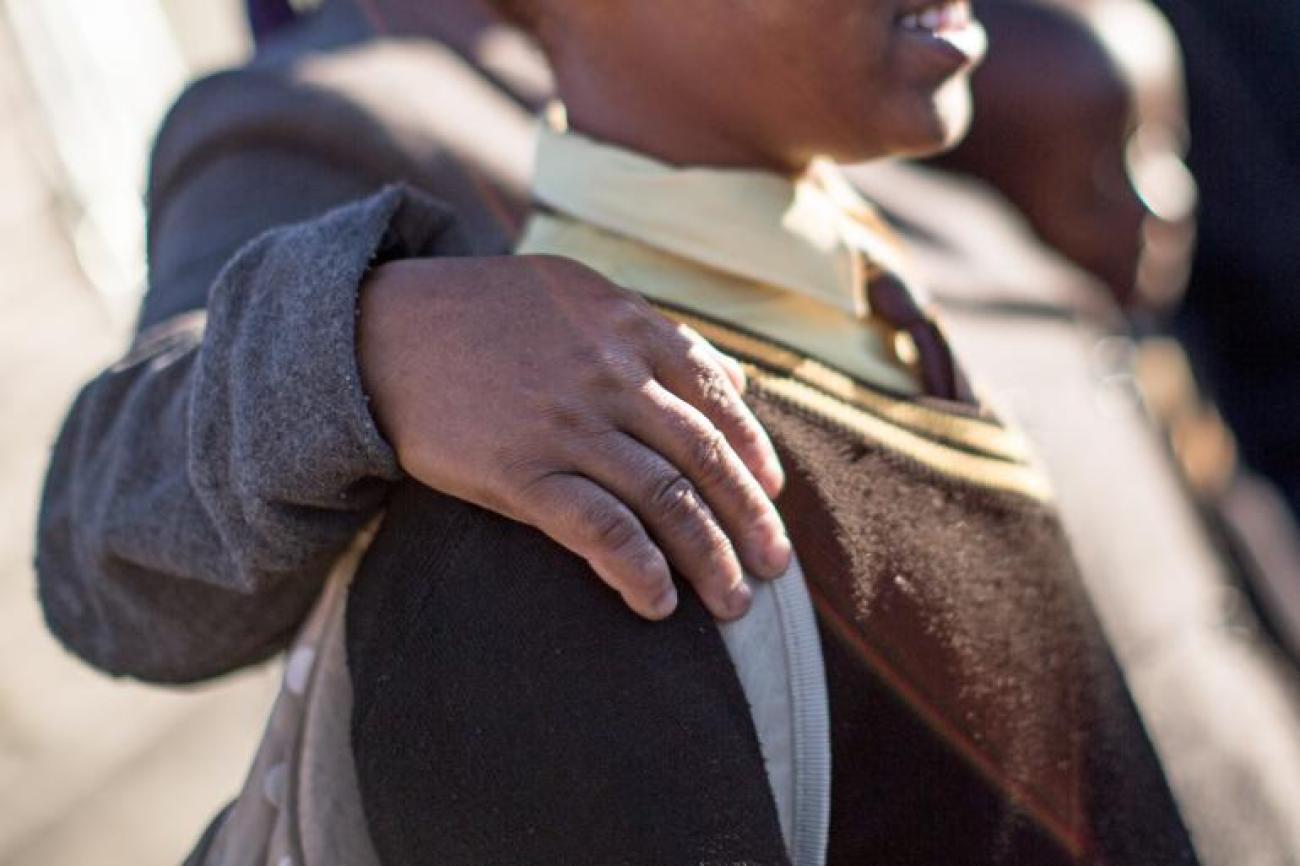73 per cent of youth needed mental health support over past year

The poll was conducted using UNICEF South Africa’s U-Report polling platform and received over 6,600 responses, with 85% of those from children and young people
Latest U-Report poll reflects importance of further scaling up mental health resources for young people but also an openness among youth to engage with their peers, with 67 per cent of respondents supporting a friend with their mental health over last 12-months.
PRETORIA, 31 October 2022 – Some 73 per cent of children and youth felt they needed mental health support over the past year, of which more than half, 38 per cent, actively sought help, according to the latest UNICEF South Africa U-Report poll.
The findings, released as mental health awareness month draws to a close, also showed that 67 per cent of young respondents stepped up to support a friend’s mental wellbeing. This reflects a 10 per cent rise on the same question in 2021. Some 74 per cent of youth who helped a friend noted that they chatted about their issues, while others referred their peers to another friend or family member, online help, a counsellor, or a medical facility.
The latest youth pulse, through the U-Report poll system, points to an ongoing need to prioritize a holistic mental health response and reflects a more open discussion among children and young people about mental wellbeing that is breaking down stigma on the issue.
“The feedback from youth is clear in that they are aware of their need for mental health support,” said Christine Muhigana, UNICEF Representative in South Africa. “Encouragingly an increasing number of children and young people are engaging with their friends on mental wellbeing. We must ensure that national policy and community-based mental health support services put youth at the centre,” added Muhigana.
Succeeding in education, the need for work skills, training and employment opportunities were cited as causing the most anxiety among 57 per cent of respondents. Children and young people are also still reluctant to reach out for support, with 62 per cent stating that they did not seek help, a slight improvement on last year’s findings. A third of those noted that they did not know where to get help, further stressing the importance of access to communication and the availability of services that target children and young people.
Encouragingly, 37 per cent of respondents noted that their mental health improved over the last year but for 24 per cent it worsened while 37 per cent were not sure. In addition, some 21 per cent of respondents believe their families are now more supportive with regards to their mental health. UNICEF South Africa continues to promote a nurturing and supportive environment at home, school and across communities to prevent mental health challenges from overwhelming young people.
A mental health roundtable to be hosted in mid-November with young people, Government, civil society, academia and the private sector will promote an integrated and cross-sectoral response, providing recommendations on moving forward.
In support of children and young people, UNICEF South Africa calls for:
- Children and young people to be put at the center of the response, including meaningful engagement and participation in policy level and community action.
- A strengthened child rights governance system that embraces a family centered approach.
- Increased investment in mental health and psychosocial support services, integrated within the primary health care, education, and child protection systems, including community services and structures.
- Improved collaboration between partners in the private sector, academia, government, and civil society to reduce the digital divide and to provide access to the 21st century skills and opportunities that young people need to thrive in life.
The poll was conducted using UNICEF South Africa’s U-Report polling platform and received over 6,600 responses, with 85 per cent of those from children and young people aged 15 to 30-years.
Notes to editors:
U-Report is a platform managed by UNICEF South Africa that helps young people to have a voice on issues that matter to them and to access information, tools and services to influence positive social change.






